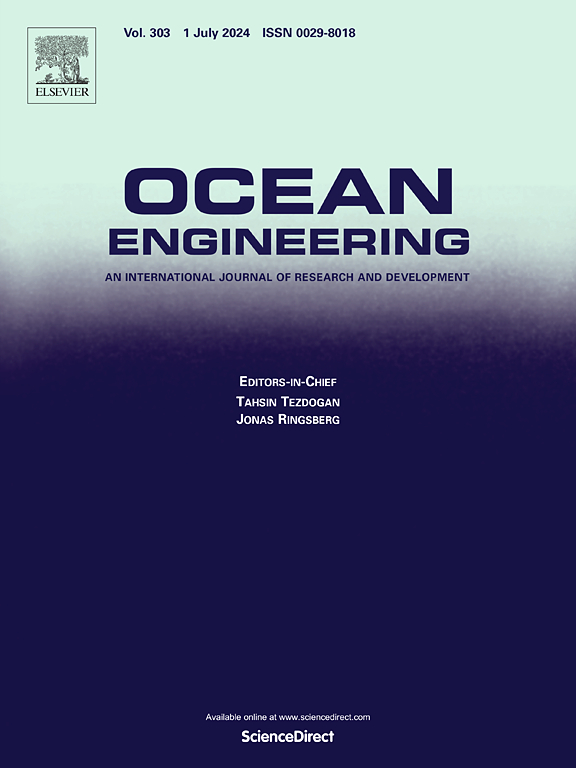A mixed stochastic waves model for analyzing offshore structures considering engineering characteristics correlation of wind-generated-wave and swell
IF 4.6
2区 工程技术
Q1 ENGINEERING, CIVIL
引用次数: 0
Abstract
In the marine environment, offshore structures face mixed stochastic waves, including wind-generated waves and swells. Current design codes often overlook swells, leading to underestimations of environmental loads and structural responses, especially for flexible structures, potentially causing resonance and instability. Wind-generated waves and swells have distinct generation mechanisms, but their characteristics, such as significant wave height and average period, show a statistical correlation due to their interaction. Thus, a mixed stochastic wave model is needed to reflect both wave types and their correlation accurately. This study investigates the correlation of wave characteristics and the power density spectrum (PSD) between wind-generated waves and swells using measured data, providing a comprehensive understanding of mixed wave interactions. The joint probability density model of wave characteristics is discussed via Vine Copula theory. A framework for obtaining mixed wave loads is developed using the Proper Orthogonal Decomposition (POD) method, treating waves as a 1 dimension - 2 variables (1D-2V) stochastic vector process. The model is applied to assess the dynamic response of a 5 MW mono-pile offshore wind turbine (OWT). Results show that swells significantly increase the internal force and bending moment demands, highlighting the necessity of including swells in offshore structure design and analysis.
用于分析近海结构的混合随机波浪模型,考虑风生波和涌浪的工程特性相关性
在海洋环境中,近海结构面临着混合随机波浪,包括风产生的波浪和涌浪。目前的设计规范往往忽略了涌浪,导致对环境荷载和结构响应估计不足,尤其是对柔性结构而言,有可能造成共振和不稳定。风引起的波浪和涌浪具有不同的产生机制,但由于它们之间的相互作用,它们的特征(如显著波高和平均周期)显示出统计相关性。因此,需要一个混合随机波浪模型来准确反映这两种波浪类型及其相关性。本研究利用实测数据研究了风成波和涌浪之间的波浪特征和功率密度谱(PSD)的相关性,从而全面了解混合波浪的相互作用。通过 Vine Copula 理论讨论了波浪特征的联合概率密度模型。利用适当正交分解(POD)方法,将波浪视为一维-两变量(1D-2V)随机向量过程,建立了一个获取混合波浪载荷的框架。该模型用于评估 5 兆瓦单桩海上风力涡轮机(OWT)的动态响应。结果表明,海浪大大增加了内力和弯矩需求,突出了将海浪纳入海上结构设计和分析的必要性。
本文章由计算机程序翻译,如有差异,请以英文原文为准。
求助全文
约1分钟内获得全文
求助全文
来源期刊

Ocean Engineering
工程技术-工程:大洋
CiteScore
7.30
自引率
34.00%
发文量
2379
审稿时长
8.1 months
期刊介绍:
Ocean Engineering provides a medium for the publication of original research and development work in the field of ocean engineering. Ocean Engineering seeks papers in the following topics.
 求助内容:
求助内容: 应助结果提醒方式:
应助结果提醒方式:


